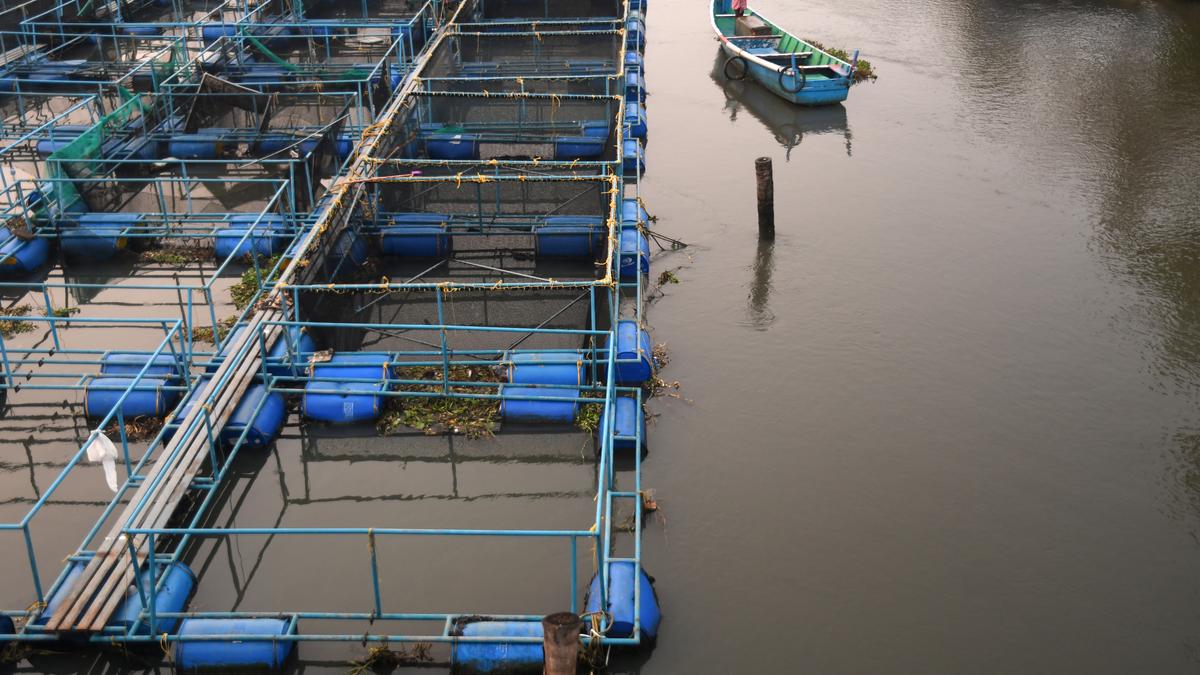
More aquatic animals were farmed than fished in 2022, for the first time ever
The Hindu
In its report on fisheries and aquaculture, the U.N.’s Food and Agriculture Organisation has said that the total amount of aquatic animals captured in the wild has fallen while the total global production increased.
The total global volume of fish, shrimp, clams and other aquatic animals that are harvested by farming has topped the amount fished in the wild from the world's waters for the first time ever, the United Nations reported on June 8.
The U.N.’s Food and Agriculture Organisation, in its latest report on fisheries and aquaculture, says the global catch and harvest brought in more than 185 million tons of aquatic animals in 2022, the most recent year for which statistics are available.
Experts say the milestone in human history had been expected, as the hauls from fisheries have largely stagnated over the last three decades — largely because of limits in nature.
Manuel Barange, who heads FAO's fisheries and aquaculture division, said aquaculture has benefited from a growing recognition of the nutritional benefits — like Omega 3 and other micronutrients found in food from aquatic animals — and lesser environmental impact than food derived from land animals.
The total amount of aquatic animals captured in the wild fell from 91.6 million tons in 2021 to 91 million tons the following year, FAO said in its latest State of the World's Fisheries and Aquaculture report. Global production rose to 94.4 million in 2022, up from 91.1 million a year earlier, it said.
Asia was the source of more than 90% of all aquaculture production of aquatic animals, the FAO added. Some 90% of aquatic animals that are farmed or fished go to human consumption, with the remainder going to other uses like feed for other animals or fish oils.
The most common fish that are captured in the world's oceans, seas, rivers, lakes and ponds include Peruvian anchovies, skipjack tuna and Alaskan pollock, while freshwater carp, oysters, clams, shrimp, tilapia and prawns are among the most harvested animal life.

“Writing, in general, is a very solitary process,” says Yauvanika Chopra, Associate Director at The New India Foundation (NIF), which, earlier this year, announced the 12th edition of its NIF Book Fellowships for research and scholarship about Indian history after Independence. While authors, in general, are built for it, it can still get very lonely, says Chopra, pointing out that the fellowship’s community support is as valuable as the monetary benefits it offers. “There is a solid community of NIF fellows, trustees, language experts, jury members, all of whom are incredibly competent,” she says. “They really help make authors feel supported from manuscript to publication, so you never feel like you’re struggling through isolation.”

Several principals of government and private schools in Delhi on Tuesday said the Directorate of Education (DoE) circular from a day earlier, directing schools to conduct classes in ‘hybrid’ mode, had caused confusion regarding day-to-day operations as they did not know how many students would return to school from Wednesday and how would teachers instruct in two modes — online and in person — at once. The DoE circular on Monday had also stated that the option to “exercise online mode of education, wherever available, shall vest with the students and their guardians”. Several schoolteachers also expressed confusion regarding the DoE order. A government schoolteacher said he was unsure of how to cope with the resumption of physical classes, given that the order directing government offices to ensure that 50% of the employees work from home is still in place. On Monday, the Commission for Air Quality Management in the National Capital Region and Adjoining Areas (CAQM) had, on the orders of the Supreme Court, directed schools in Delhi-NCR to shift classes to the hybrid mode, following which the DoE had issued the circular. The court had urged the Centre’s pollution watchdog to consider restarting physical classes due to many students missing out on the mid-day meals and lacking the necessary means to attend classes online. The CAQM had, on November 20, asked schools in Delhi-NCR to shift to the online mode of teaching.









